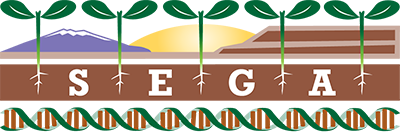You are here
Arboretum Interactive Climate Change Center Gets A Boost
The Arboretum at Flagstaff has just been awarded a $25K grant by the Institute of Museum and Library Services to complete its interactive outdoor Climate Change Center or CCC. Designed to engage students and general audiences in the Science, Technology, Engineering, and Mathematics of real time climate change research, the CCC displays are based on work being carried out at the Southwest Experimental Garden Array (SEGA), so that the public can learn what SEGA research is revealing and how these findings can be used in mitigation efforts. Over 20,000 guests visit The Arboretum every year, to learn about the flora and fauna of the Colorado Plateau and the environment in which they are found. Consisting of a series of interactive outdoor kiosks, CCC already has four kiosks which have been providing a unique learning experience for students of all ages, since they were opened in May 2017. The new Phase III award will fund three new kiosks focusing on: a) Temperature monitoring – how is temperature monitored in the SEGA gardens and what is the importance of microclimates for plant growth? The display will feature multiple thermocouples & allow the visitor to toggle through maps and graphs of data. b) Solar power technology and renewable energies – how is SEGA powered? Students will be able to see how the amount of power converted from a gimble-mounted solar panel varies as they change the position of that panel. c) Photosynthetically Active Radiation (PAR) – using Li-Cor PAR sensors this kiosk will demonstrate the specific spectrum of light used by plants for photosynthesis and growth. In addition to the three additional kiosks (making a total of seven), the funding will also be used to make curriculum guides to assist educators with assist onsite and classroom instruction. These curriculum guides – along with accompanying relevant data sets, will be readily available through the development of new webpage interfaces. The curriculum guides focus on three major themes: i) How climate change research can minimize impacts on the Earth and society, ii) how to make smarter choices in how we live our everyday lives, and iii) help to build public trust and endorsement of scientific inquiry into climate change. The success of the CCC will be measured by the number of participants visiting the kiosks, exit surveys on visitors found the onsite learning experience, and pre- and post-visit questions to test the audiences' climate change knowledge. The Arboretum’s Research Director, Dr Kris Haskins, says that she hopes these new kiosks will improve the public understanding of and engagement with the state-of-the-art science in this area. “One of the biggest issues we are facing is climate change. Yet the issue is politicized and climate change education is often not place-based. We seek to raise awareness about climate change, connect people to on- the- ground scientific investigation, teach students and teachers, and demythologize a politicized issue using a ‘Public Engagement with Science’ model” Haskins explains. “On completion the CCC will accomplish one of the The Arboretum’s strategic plan primary directives —to become a major STEM education site in northern Arizona.”
Theme by Danetsoft and Danang Probo Sayekti inspired by Maksimer
